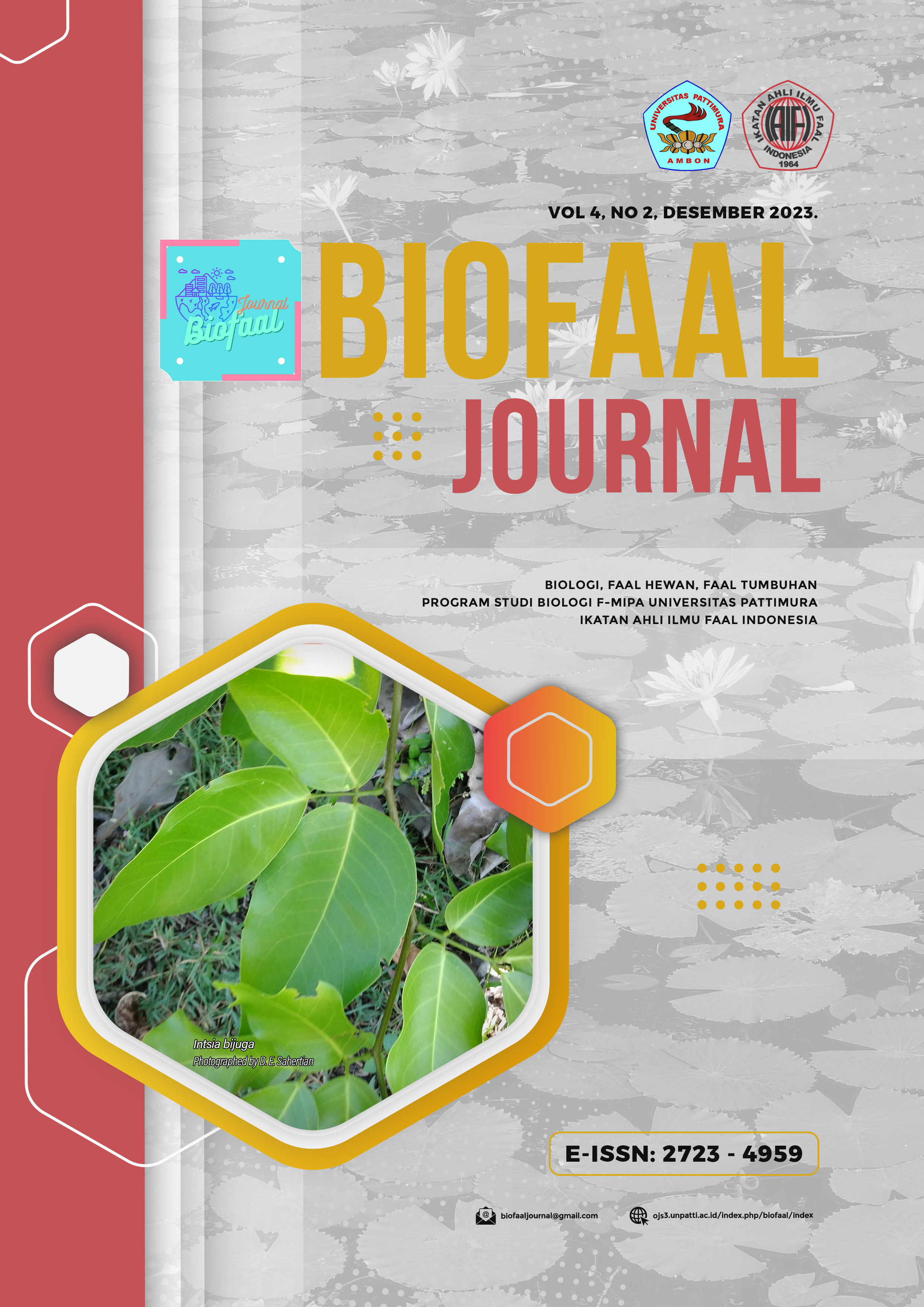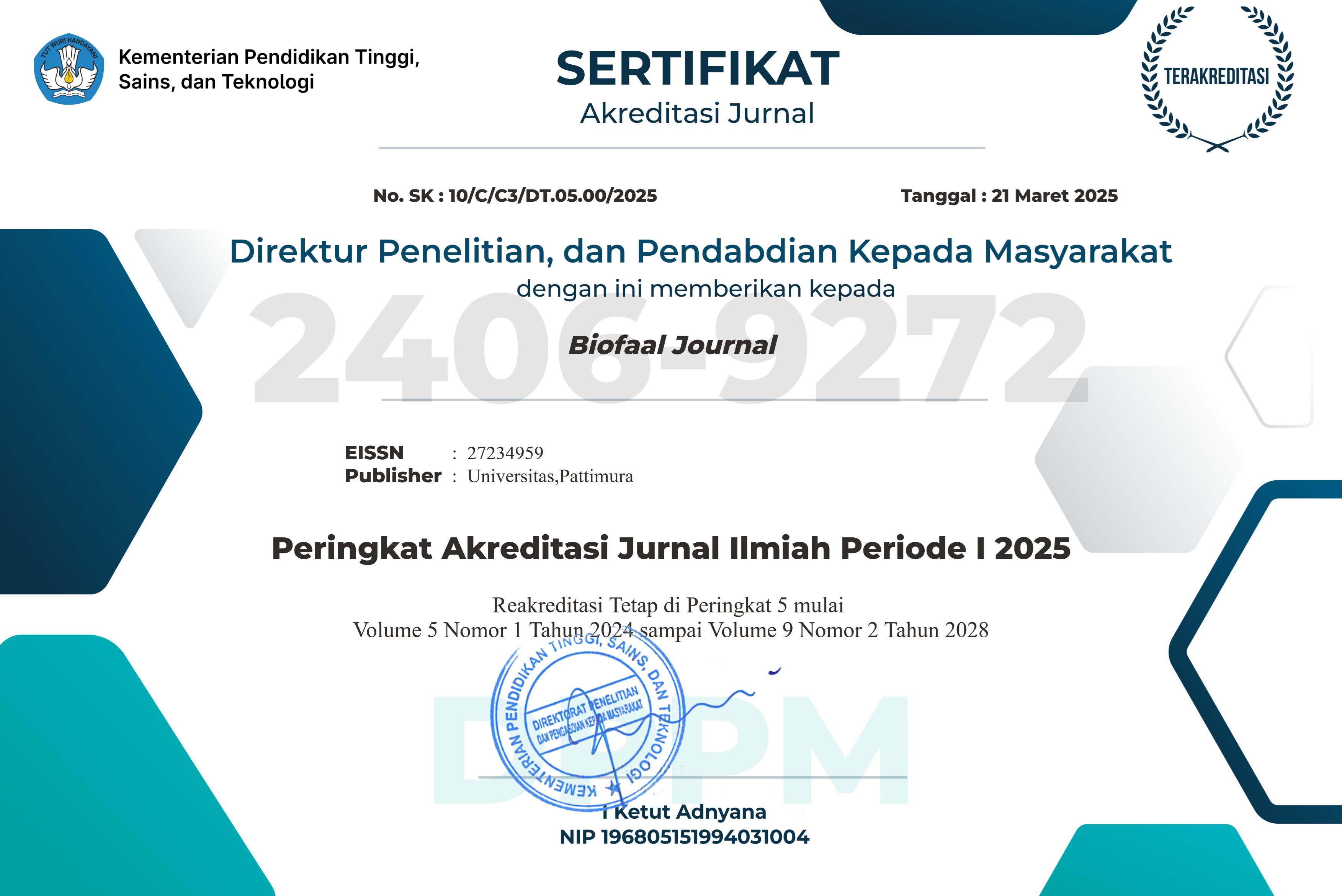ANALISIS KEMAMPUAN DARI EKSTRAK ETANOL RUMPUT LAUT Ulva lactuca SEBAGAI ANTIBAKTERI Vibrio sp. DAN KAJIAN FITOKIMIANYA
Abstract
An analysis of the antibacterial ability of Vibrio sp. has been carried out from the ethanol extract of Ulva lactuca seaweed and its phytochemical study. Analysis of the antibacterial ability of Vibrio sp. using the disk diffusion method was the main thing carried out in this research, then the extract yield was calculated from the maceration process of Ulva lactuca seaweed, as well as phytochemical analysis to support the antibacterial ability of Ulva lactuca seaweed against the bacteria Vibrio sp. The results of the extraction of Ulva lactuca seaweed with ethanol solvent obtained a yield of 3.67%. The results showed a moderate antibacterial activity of Vibrio sp. from Ulva lactuca seaweed extract at a concentration of 100% was 17.3 mm. Weak antibacterial activity was at a concentration of 75% of 12.525 mm and extracts below a concentration of 75% did not have inhibitory power against Vibrio sp bacteria. Phytochemical studies of Ulva lactuca seaweed found secondary metabolite compounds in the form of alkaloids, flavonoids, steroids, tannins and saponins. Based on the results of this research, it is hoped that the antibacterial ability of Vibrio sp. can be further investigated from ethanol extract of Ulva lactuca seaweed in vivo.
Downloads
Copyright (c) 2023 Jakomina Metungun, Mariana Yerminal Beruatjaan, Hendro Hitijahubessy, Endang Tamher

This work is licensed under a Creative Commons Attribution-NonCommercial-ShareAlike 4.0 International License.
1. Author retain copyright and grant the journal right of first publication with the work simultaneously licensed under a creative commons attribution license that allow others to share the work within an acknowledgement of the work’s authorship and initial publication of this journal.
2. Authors are able to enter into separate, additional contractual arrangementfor the non-exclusive distribution of the journal’s published version of the work (e.g. acknowledgement of its initial publication in this journal).
3. Authors are permitted and encouraged to post their work online(e.g. in institutional repositories or on their websites) prior to and during the submission process, as it can lead to productive exchanges, as well as earlier and greater citation of published works.








